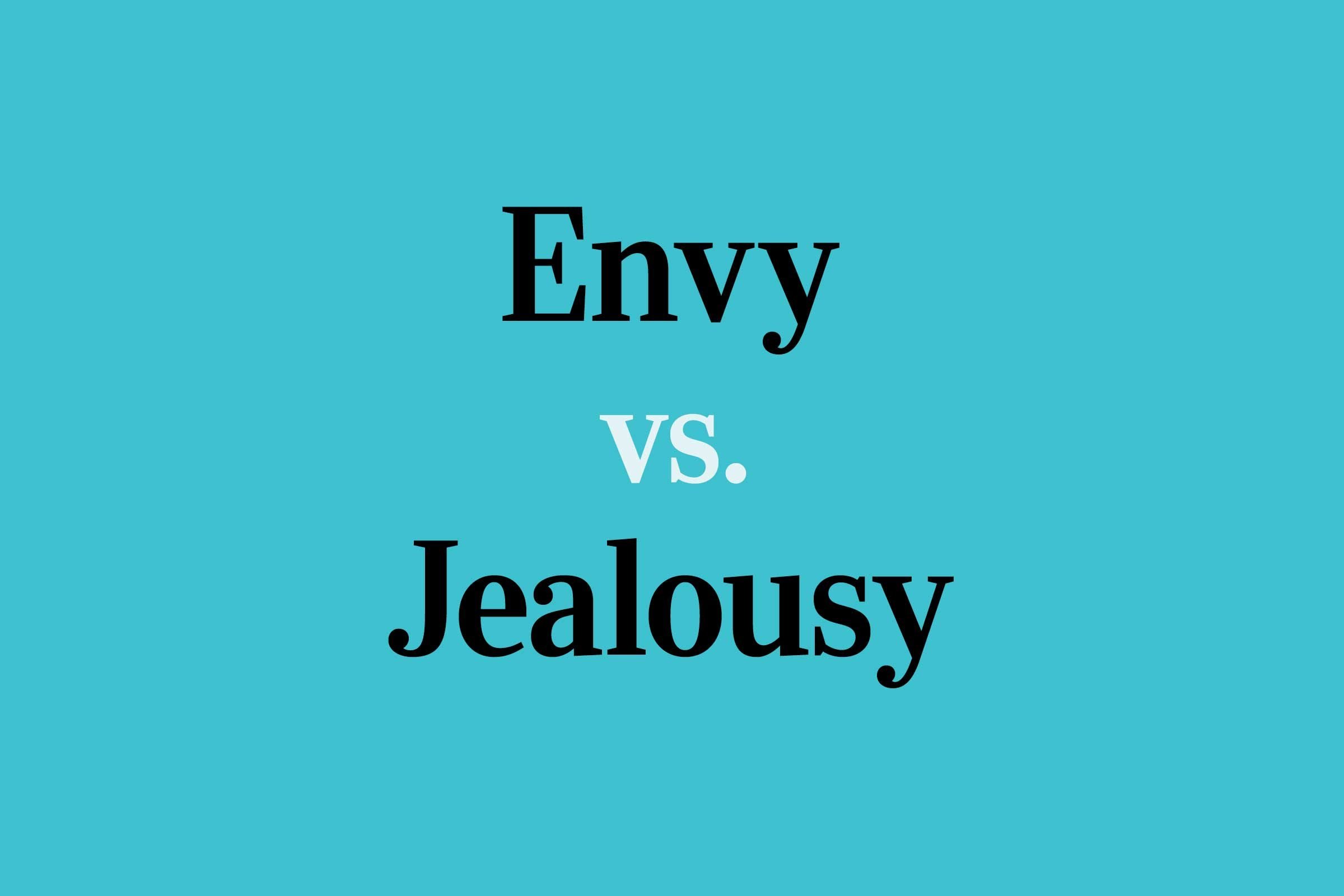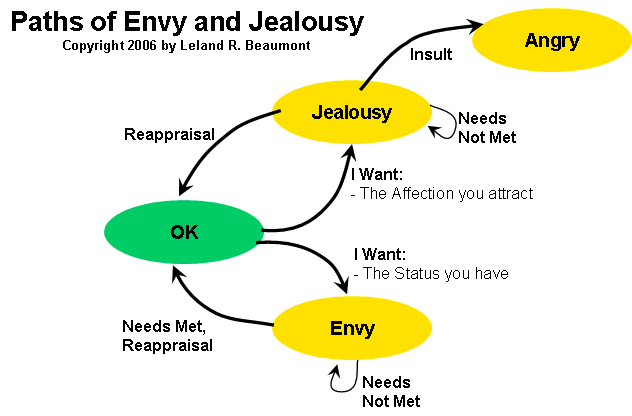Envy and jealousy are often used interchangeably, but they actually have distinct meanings and implications. Envy is a feeling of discontent or resentment towards someone else’s possessions, qualities, or success. It involves a desire to possess what another person has, whether it be material possessions, talents, or achievements. Envy is often rooted in feelings of inadequacy or insecurity, and can lead to negative emotions such as bitterness or resentment. On the other hand, jealousy is a fear of losing something that is important to us, such as a relationship or a position.
Jealousy is typically triggered by a perceived threat to our status or security, and can lead to feelings of anxiety, possessiveness, or suspicion. While envy is directed towards what others have, jealousy is focused on protecting what we already possess. Understanding the difference between envy and jealousy can help us navigate our emotions and relationships more effectively. By recognizing when we are feeling envious or jealous, we can address the underlying issues and work towards cultivating healthier attitudes and behaviors.

Explore the basic meanings and nuances of both emotions
Emotions are complex and nuanced aspects of human experience that play a significant role in shaping our perceptions, behaviors, and relationships. Understanding the basic meanings and nuances of emotions such as joy and sadness can provide valuable insights into the human psyche. Joy is a positive emotion that is typically associated with feelings of happiness, contentment, and pleasure. It is often characterized by a sense of lightness, warmth, and excitement. Joy can be triggered by a variety of experiences, such as achieving a goal, spending time with loved ones, or witnessing something beautiful. In contrast, sadness is a negative emotion that is typically associated with feelings of sorrow, grief, and loss.
It is often characterized by a sense of heaviness, emptiness, and melancholy. Sadness can be triggered by a variety of experiences, such as the death of a loved one, a breakup, or a failure. Despite being opposite in nature, joy and sadness are both essential components of the human emotional experience. They serve as a means of communication, allowing us to express our innermost thoughts and feelings to others. They also serve as a source of motivation, driving us to seek out positive experiences and avoid negative ones. By exploring the basic meanings and nuances of joy and sadness, we can gain a deeper understanding of ourselves and others, fostering greater empathy, compassion, and connection in our relationships.
Delve into why we feel envious and what triggers this emotion
Envy is a complex emotion that can arise from a variety of triggers. One common trigger is comparison – when we see someone else achieving success or possessing something that we desire, we may feel envious of their accomplishments or possessions. This can be exacerbated by social media, where we are constantly bombarded with images of other people’s seemingly perfect lives. Another trigger for envy is insecurity – when we feel inadequate or lacking in some way, seeing others who are successful or have what we want can magnify our feelings of inferiority.
Additionally, envy can be fueled by a sense of injustice or unfairness – when we perceive that someone else has received something that we believe we deserve more, we may feel envious of their good fortune. Ultimately, envy is a natural human emotion that stems from our innate desire for validation, recognition, and success. It can be a powerful motivator, driving us to work harder and strive for our own goals. However, when left unchecked, envy can lead to resentment, bitterness, and even destructive behavior. It is important to recognize and acknowledge our feelings of envy, and to work towards developing a mindset of gratitude and contentment. By focusing on our own strengths and accomplishments, and celebrating the successes of others without comparison, we can cultivate a more positive and fulfilling outlook on life.

Understanding Jealousy
Jealousy is a complex and often misunderstood emotion that can manifest in various ways. It is a natural human response to feelings of insecurity, fear, and inadequacy. When someone experiences jealousy, they may feel threatened by the possibility of losing something or someone they value. This can lead to feelings of resentment, anger, and even aggression towards the perceived threat. Jealousy can stem from a variety of sources, such as romantic relationships, friendships, or professional rivalries.
It is important to understand that jealousy is a normal part of the human experience, but it is also crucial to recognize when it becomes unhealthy or destructive. In some cases, jealousy can lead to controlling or manipulative behaviors that can harm relationships and erode trust. It is essential to address and work through feelings of jealousy in a healthy and constructive manner, such as through open communication, self-reflection, and seeking support from loved ones or a therapist. Ultimately, understanding jealousy involves recognizing and acknowledging our own insecurities and vulnerabilities, and learning to navigate and manage these emotions in a way that promotes growth and emotional well-being.
Impact on Relationships
Relationships can be greatly affected by various factors, such as communication, trust, and mutual respect. When individuals engage in behaviors that are considered socially unacceptable or unethical, it can have a significant impact on their relationships with others. For example, if one person in a relationship engages in dishonest behavior or betrayal, it can erode the trust that is essential for a healthy relationship. This can lead to feelings of betrayal, resentment, and anger, which can ultimately damage the bond between individuals.
Additionally, engaging in behaviors that are harmful or hurtful to others can create a barrier to open and honest communication, making it difficult for individuals to resolve conflicts and address issues within the relationship. Furthermore, when individuals engage in behaviors that go against their values or beliefs, it can create tension and conflict within the relationship, leading to feelings of frustration and disappointment. Overall, the impact of unethical behavior on relationships can be profound, leading to strained connections, broken trust, and emotional turmoil. It is important for individuals to consider the consequences of their actions on their relationships and to strive to uphold values of honesty, integrity, and respect in order to maintain healthy and fulfilling connections with others.

Managing and Overcoming These Emotions
Managing and overcoming strong emotions can be a challenging task, but it is essential for our mental and emotional well-being. One strategy for dealing with intense emotions is to practice mindfulness and self-awareness. By being present in the moment and acknowledging our feelings without judgment, we can begin to understand the root causes of our emotions and develop healthier coping mechanisms. It is also important to remember that emotions are a natural part of the human experience and that it is okay to feel them.
However, it is crucial to not let our emotions control us and to take steps to regulate them in a healthy way. This may involve seeking support from friends, family, or a therapist, engaging in self-care activities, or practicing relaxation techniques such as deep breathing or meditation. Additionally, setting boundaries and practicing assertiveness can help us navigate difficult emotions in relationships and avoid conflict. By taking proactive steps to manage and overcome our emotions, we can cultivate emotional resilience and lead a more balanced and fulfilling life.
